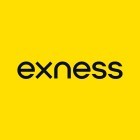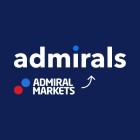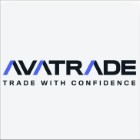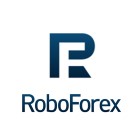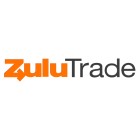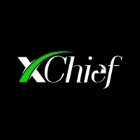マーケットメーカー外国為替ブローカー | Market Maker Forex Brokers
| ブローカー | レビューを投稿する | フォーラム投稿 | 規制 | 全体の評価 | ユーザー レーティング | 最低入金額 | 最大リバレージ | トレードプラットフォーム | 赤字残高に対する保護 | 規制機関による預金保険 | アカウント通貨 | 実行モデル | 資産の区分 | dd7721e9-d046-4ad1-ba21-a3afbb01e468 |
|---|
Best Market Makers Forex Brokers in 2026
Market Maker forex brokers, comparison table. Check out our recommended brokers in 2026, sorted by overall rating by our industry experts. Compare each broker’s user rating to see how verified traders with a real account rate them for their trading conditions.
What are Market Maker (MM) brokers?
Market Maker brokers, as the name suggest, are brokers making a market. This means that traders will be trading in the broker’s pool of liquidity, and not directly with the underlying market.
A Market Maker broker posts bids and offers of an asset on its trading platform and when traders want to buy a security, they will sell. In the same way, if a trader wants to sell a security, they will buy it. When a trader opens an order, the MM broker takes the opposite side of the trade, as the trades are not passed to the market.
Instead, the counterparty of each trade is the MM broker itself. There are some pros and cons to this business model. Most traders’ biggest worries are the possible conflict of interest and price manipulation, including worse prices than the market and higher spreads.
But there are more pros traders should consider. With a MM broker, there’s increased liquidity and pricing can be more competitive. But the best features about a MM broker are the much lower initial account deposits – with an ECN broker account deposits are much higher, due to the trading costs.
And then, there’s the offering of trading with a Micro account and higher leverage ratios (subject to regulations). Combine all those ingredients offered by a MM broker and it could be the perfect scenario for novice traders and traders looking to test an EA.
Every market needs a maker, an entity supplying liquidity and processing orders. Some of the biggest Market Maker brokers in the world include the Deutsche Bank, Morgan Stanley, BNP Paribas and UBS. Wouldn’t you trade with these brokers because they are Market Makers?
Why trade with a Market Maker broker?
There are multiple advantages, as the MM broker offers “in-house trading”. As we saw above, the number 1 advantage is increased liquidity. The MM broker buys large positions of the market and then offers it to its clients, in smaller portions.
So, whenever a trader wants to buy a position (or short it), the MM broker is ready to take the other side of the trade. This translates in no requotes, something that can happen sometimes with an ECN broker, for example.
But, in our view, the main reason why one should trade with a MM broker is that they cater for small capital investors. Several MM brokers offer Cent/Micro accounts, with initial deposits as little as $1. We highlight the case of the XM broker, highly regulated and with a minimum deposit of $5, and RoboForex with a minimum deposit of $10.
Both offer to trade with micro lots, and although it might look like that $10 is too little, on a Cent account, $1 represents 100 USD cents. As a Cent/Micro account uses 100x denominated monetary units of the base currency, this would be the equivalent to 100 USD on a normal account. Add a leverage ratio of 500:1 to these account types and the trader will have a trading capital of 500 USD cents.
On these account types, the minimum traded lot available is 0.10. But contrary to a “normal” account, where 0.10 lot is 10,000 currency units, on a Cent/Micro account 0.10 lot is in reality 0.01 lot or just 1,000 currency units. And as ECN brokers minimum trade lot is 10,000 currency units, requiring higher margins, only a MM broker can offer such trading conditions.
To recap, if a trader chooses to open a Micro/Cent account with a MM broker, deposits $10, and adds 500:1 leverage, will trade with an initial balance of 500 USD cents. With a 500:1 leverage ratio the margin required to open a 0.10 lot of EUR/USD, for example, is 20 USD cents.
And the other main reason to trade with a MM broker is that these account types, offered exclusively by MM brokers, are great for testing EAs. Traders and developers looking to test an automated trading strategy have two options: open an ECN account (higher minimum deposits and strict leverage) or a Cent/Micro account (low deposit, higher leverage).
Cent/Micro accounts trading conditions are equal to those for standard accounts but require much smaller capital. So, the risk for the trader whilst testing the EA is also much smaller – in case the EA doesn’t perform as expected or needs further optimization.
Compare the best brokers for your trading strategy
Use our Market Maker forex brokers list to compare several companies and find out how our industry experts rate them. Compare also how verified traders rate each broker for its trading conditions, and check out each broker's overall rating, the minimum deposit and maximum leverage.
Compare which brokers have negative balance protection (NBP) and protect investors funds with regulatory deposit insurance. Confirm the available trading platforms of each broker (MT4, MT5, WebTrader and cTrader), the account currency and the available asset classes (forex, cryptocurrencies, indices, stocks, etc.).
Reputable Market Maker forex brokers to help you succeed in your online trading career.



